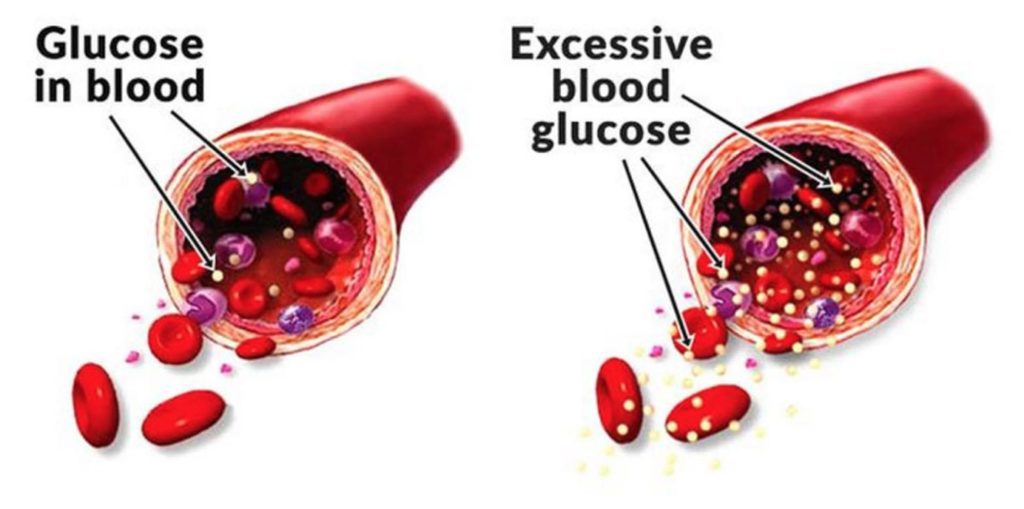[cityname]: Can Stress Raise Blood Sugar and Blood Pressure?
Absolutely — stress doesn’t just affect your emotions. It has a profound impact on your blood sugar, blood pressure, and entire metabolic system.
At Wisdom OS, we help clients here in United States of America understand how stress, circulation, oxygenation, hormones, and emotions are all interconnected — often identifying these patterns long before symptoms fully emerge.
How Stress Impacts Blood Sugar

When you’re under stress, your adrenal glands release hormones that increase blood sugar. This is part of your body’s natural survival response — preparing you for action by releasing stored glucose for immediate energy.
However, when stress becomes chronic:
- Blood sugar levels may remain elevated
- Insulin resistance may increase
- Inflammation may rise
- The pancreas may struggle to keep balance
- Long-term metabolic dysfunction can develop
Even without dietary changes, chronic emotional stress can directly contribute to rising glucose levels.
So what are some things you can do to mitigate stress in United States of America?
Here are just a few ideas for diffusing some of the stress in United States of America:
- Keep a positive attitude and work on accepting that there are events that you cannot control.
- Learn to manage your time more effectively.
- Make time for hobbies and interests.
- Don’t rely on alcohol, drugs, or compulsive behaviors to reduce stress. Drugs and alcohol can stress your body even more.
- Seek out social support.
- Spend time with those you love.
- Seek treatment with a psychologist or other mental health professional trained in stress management or biofeedback techniques to learn more healthy ways of dealing with the stress in your life.
How Stress Impacts Blood Pressure
The same stress response also affects your cardiovascular system:
- Blood vessels constrict
- Heart rate increases
- Platelet aggregation thickens the blood
- Vascular flexibility decreases over time
- Blood pressure rises
Over time, these changes may create strain on your heart, brain, kidneys, and circulatory system.
The Link Between Blood Sugar and Blood Pressure
- High blood sugar damages blood vessels, reducing their elasticity.
- Damaged vessels contribute to higher blood pressure.
- Poor circulation creates feedback loops that worsen both conditions.
- Both hypertension and diabetes share common stress-related triggers.
When one system is strained, others often follow — this is why integrated, whole-body support is so essential.

What is blood sugar?
Blood sugar, or glucose, is the main sugar found in your blood. It comes from the food you eat, and is your body’s main source of energy. Your blood carries glucose to all of your body’s cells to use for energy.
The sugar that isn’t needed to fuel your body right away gets stored in cells for later use. Too much sugar in your blood can be harmful.
Type 2 diabetes is a disease that’s characterized by having higher levels of blood sugar than what’s considered within normal limits. Unmanaged diabetes can lead to problems with your heart, kidneys, eyes, and blood vessels.
How does blood sugar regulate?
Most of the time, glucose levels increase after you eat a meal. When blood sugar rises, cells in the pancreas release insulin, causing the body to absorb glucose from the blood and lowering the blood sugar level to normal.
The human body wants blood glucose (blood sugar) maintained in a very narrow range. Insulin and glucagon are the hormones which make this happen. Both insulin and glucagon are secreted from the pancreas, and thus are referred to as pancreatic endocrine hormones. Regulation of blood glucose is largely done through the endocrine hormones of the pancreas, a beautiful balance of hormones achieved through a negative feedback loop. The main hormones of the pancreas that affect blood glucose include insulin, glucagon, somatostatin, and amylin.
Why does blood sugar increase?
Carbohydrates such as rice, pasta, bread etc. can cause blood sugar to rise. When you eat carbs they are broken down into simple sugars. The sugar will then enter the bloodstream, causing your blood sugar level to rise. The pancreas then releases insulin which prompts the cells to absorb sugar from the blood.
Blood sugar spikes occur when your blood sugar rises and then falls sharply after you eat. Over time, your body may not be able to lower blood sugar effectively, which can lead to type 2 diabetes. Diabetes is a rising health problem. In fact, 29 million Americans have diabetes and 25% do not even know that they have it.
When blood sugar is high what are the symptoms?
You will notice a lot of symptoms if your blood sugar is high. Early signs include thirst, headache, trouble concentrating, blurred vision, frequent peeing, fatigue, weight loss, vision changes, skin infection, vaginal infection, slow-healing cuts and sores, nerve damage causing painful cold or insensitive feet, loss of hair, erectile dysfunction, stomach and intestinal problems, damage to blood vessels or kidneys and so on.
Many people with uncontrolled high blood sugar find that they’re hungrier than usual. Fatigue and extreme tiredness are also symptoms of uncontrolled blood sugar. You may notice that your vision isn’t as clear as it used to be and that things may appear a bit blurry. High blood sugar levels can lead to swollen lenses in your eye from fluid leaking in. Cuts, scrapes, bruises, and other wounds heal more slowly in the presence of uncontrolled blood sugar.
As mentioned, uncontrolled blood sugar can cause nerve damage, also known as diabetic neuropathy. Blisters, infections, dryness, itchiness, discolorations, and abnormalities of the skin can all be warning signs of high blood sugar. Hyperglycemia may lead to more frequent genital yeast infections.
How does poor circulation influence blood sugar?
If someone has poor blood circulation it will lead to plaque forming in the blood vessels rendering them unable to deliver sufficient amounts of blood to neighboring cells and that can lead to raised blood sugar levels.
Fortunately, there are simple, tried and tested ways of improving blood flow around the body. From general lifestyle changes to acute therapies, understanding how to support your circulation is a key part of maintaining healthy blood pressure and blood sugar levels.
Need help improving your blood sugar? Want to explore helping your diabetes at home? Contact us today for help with your suggestion plan.
Call/Text: 214-210-7156
Email: info@wisdomos.app
website: WISDOMOS.APP
Disclaimer
WISDOM OS focuses exclusively on wellness education and does not provide medical services. We are not state-licensed physicians and do not diagnose, treat, or prescribe medications for any condition. Information shared during consultations or in communications is not a substitute for medical advice. Any suggestions provided as part of a wellness education program and are not intended to diagnose, treat, or prevent any medical condition. Always consult a licensed healthcare provider before making significant changes to your wellness routine.

